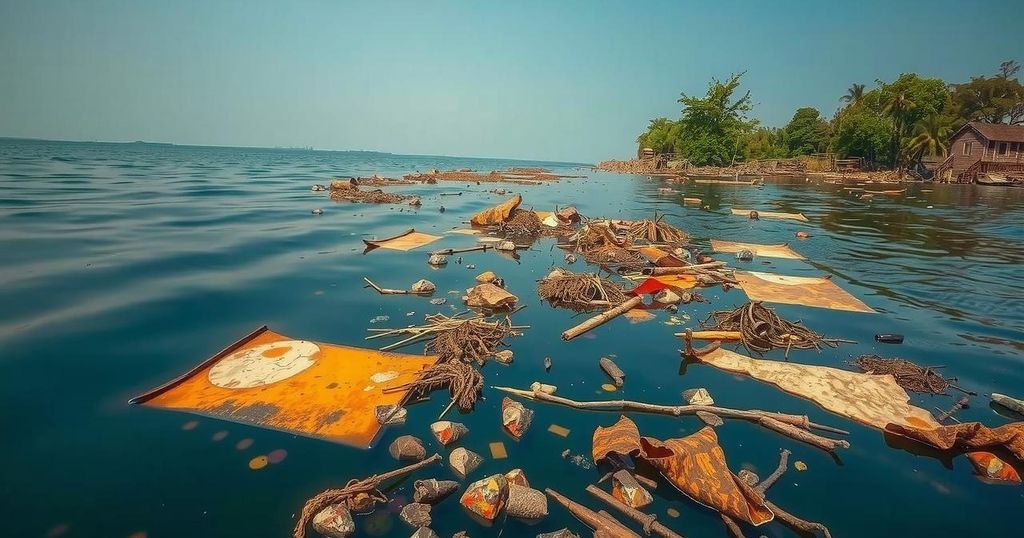Recent research indicates widespread PFAS contamination in African waters, notably in South Africa’s Vaal River and Kenya’s Nairobi River. The substances, commonly known as ‘forever chemicals’, pose serious environmental and health risks. With industrial outflows and insufficient wastewater management exacerbating the problem, experts call for stringent regulations, better treatment technologies, and public education to mitigate the impacts of these chemicals across the continent.
The presence of “forever chemicals” in Africa’s aquatic ecosystems poses a significant threat to both environmental and public health. A recent study by researchers Patrick Ssebugere, Ashirafu Miiro, and Oghenekaro Nelson Odume examined PFAS contamination across 11 African nations, uncovering concerning levels in regions such as South Africa’s Vaal River and Kenya’s Nairobi River. Lake Victoria, as the largest lake on the continent, is particularly alarming due to its crucial role in supporting millions of lives within the Nile River basin.
These perfluoroalkyl and polyfluoroalkyl substances (PFAS) are termed “forever chemicals” due to their resistance to environmental degradation, adversely impacting ecosystems by accumulating in organisms and entering human food systems. PFAS exposure has been linked to various health issues including kidney disease and reproductive disorders. The study emphasizes that despite underreporting, PFAS contamination remains a critical environmental challenge for Africa.
Key contributors to this contamination include industrial discharges and outdated wastewater treatment technologies. Stricter regulatory frameworks are needed to address this issue effectively, alongside improvements to wastewater treatment facilities and education for the public regarding the risks associated with PFAS exposure. The researchers advocate for alignment with international agreements to foster environmental protection and public health improvements.
The term ‘forever chemicals’ refers to perfluoroalkyl and polyfluoroalkyl substances (PFAS) known for their persistence in the environment. They have been detected in various ecosystems across Africa, threatening aquatic biodiversity and human health due to accumulation in the food chain. Despite growing awareness, reports indicate that PFAS contamination is underreported in many African nations, underscoring the urgent need for research and regulatory measures. Researchers have identified specific hotspots and have emphasized the necessity of international cooperation to manage and mitigate these harmful chemicals.
The alarming prevalence of PFAS contamination in African waters highlights the urgent need for increased awareness, stricter regulations, and improvements in wastewater management. With serious implications for public health and environmental integrity, it is imperative that African countries prioritize initiatives to combat ‘forever chemicals.’ Collaborative efforts, enhanced scientific research, and public education are essential to address this pressing issue effectively.
Original Source: theconversation.com






